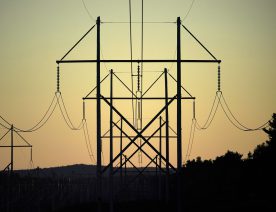
April 11, 2023
Forty-one percent of Americans say they would be at least somewhat likely to purchase an electric vehicle (EV) the next time they are in the market for a new car, according to a new survey from the Energy Policy Institute at the University of Chicago (EPIC) and The Associated Press-NORC Center for Public Affairs Research. More than 6 in 10 Americans cite saving money on gas and vehicle maintenance as reasons to purchase one, along with reducing their personal impact on climate change. But cost, infrastructure, and technology are key barriers for majorities of Americans when it comes to purchasing an EV.
When it comes to policies to support getting more EVs on the road, about half of Americans support financial incentives, while fewer support stricter fuel standards or requiring new cars sold in their state to be electric or hybrid.
Fifty-seven percent of Americans view energy policy as very or extremely important, and 53% say the same about climate change. More than half of Americans are taking actions that will reduce their energy consumption – and their energy bills –such as using energy efficient appliances and reducing their use of heat or air conditioning. But far fewer are taking part in costlier measures, such as composting or living in a home with solar panels.
And while 38% of Americans support a carbon fee to combat climate change when told it would increase the cost of energy by $1 each month, willingness to pay decreases as the impact on their energy bill grows.
Views on whether climate change is happening have remained stable in recent years, with 74% saying climate change is happening. However, the percent of adults who say climate change is mostly or entirely caused by humans, as opposed to mostly or entirely caused by natural changes in the environment, has declined. In 2018, among those who say climate change is happening, 60% said it is caused mostly or entirely by humans. This has dropped to 49% in 2023.
Attitudes continue to be partisan, with 91% of Democrats and 56% of Republicans believing that climate change is happening. Adults who have experienced extreme weather in their communities in the past year are also more likely to believe in climate change.
When it comes to the impact of climate change, Americans are more concerned about future generations than the effects on them personally. Lower-income Americans are more likely to be concerned for themselves, as well as for low-income communities in general, than those with higher incomes.
This nationwide poll was conducted by The AP-NORC Center and the Energy Policy Institute at the University of Chicago (EPIC) from January 31 – February 15, 2023, using TrueNorth®, which combines a sample from AmeriSpeak, the probability-based panel of NORC at the University of Chicago, with a non-probability panel sample. Online and telephone interviews using landlines and cell phones were conducted with 5,408 adults. The margin of sampling error is +/- 1.7 percentage points.
- Suggested Citation: The AP-NORC Center for Public Affairs Research. (April, 2023). “Americans’ views on climate, energy policy and electric vehicles” [https://apnorc.org/projects/americans-views-on-climate-energy-policy-and-electric-vehicles/]








